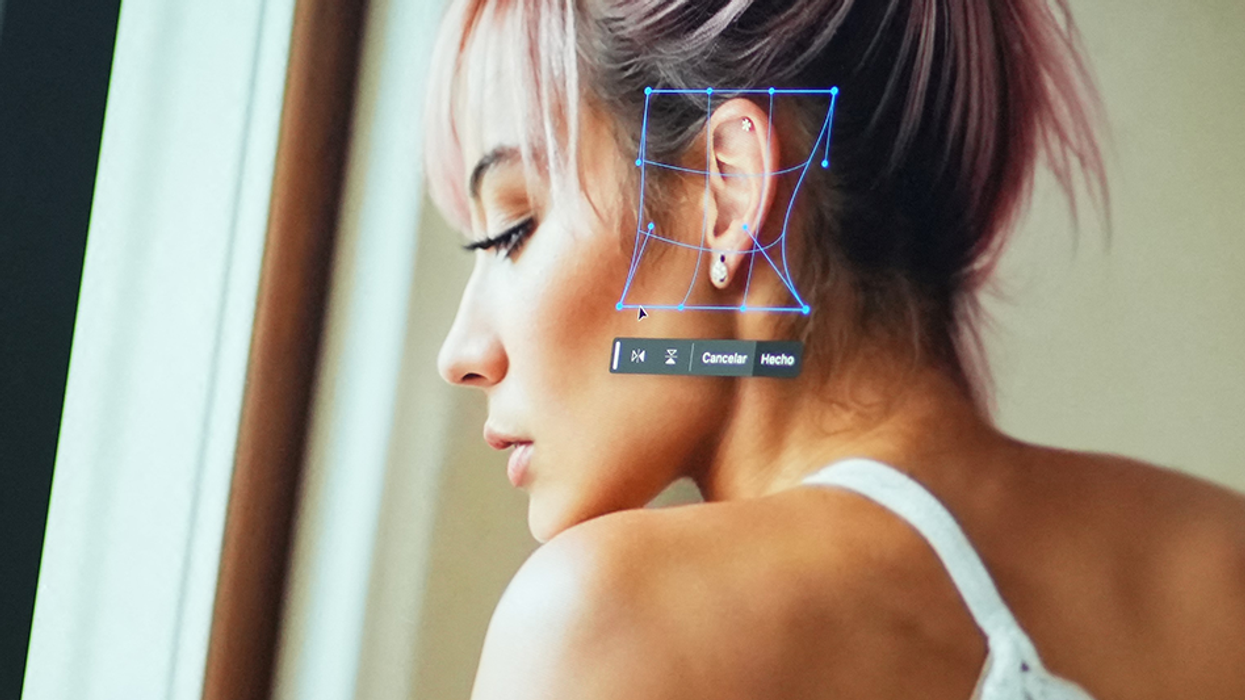
Photo by PAU BARRENA/AFP via Getty Images

'I was like "man, my hair looks strange."'
YouTube used artificial intelligence on videos without user knowledge and was caught when an array of creators called the company out.
The use of AI was brought to light by creators like Rhett Shull and Rick Beato, who have about 6 million YouTube subscribers between them. Beato, who makes up over 5 million of those, sent two of his own short-form YouTube videos (shorts) to Shull, asking him if he could spot the differences.
While they were supposed to be the same, one video had clearly been edited with AI.
'I'm a tech nerd and I try to be precise about the terminology I use.'
"I was like 'man, my hair looks strange," Beato told the BBC. "And the closer I looked, it almost seemed like I was wearing makeup."
The outlet reported, in conjunction with creator testimony, that YouTube has been secretly using AI to tweak videos without creators' knowledge or permission. This has given videos some of the telltale signs of an AI video: overly defined facial features, blurry lettering, and an overall unnatural look to human skin and hair.
Shull referred to a Reddit thread that seemed to prove his theory, where a creator's short was enhanced from 240p resolution to 1080p in a span of 12 hours — seemingly on its own — revealing significant changes to resolution and clarity.
After another report surfaced on X and garnered over 1 million views, a YouTube representative finally responded.
RELATED: Why Sam Altman brought his sycophantic soul simulator back from the digital dead
"is this true? YouTube upscaling our shorts?" a streamer asked a YouTube rep.
Rene Ritchie, YouTube's head of editorial and creator liaison, responded carefully.
"No GenAI, no upscaling," Ritchie claimed. "We're running an experiment on select YouTube Shorts that uses traditional machine learning technology to unblur, denoise, and improve clarity in videos during processing (similar to what a modern smartphone does when you record a video). YouTube is always working on ways to provide the best video quality and experience possible, and will continue to take creator and viewer feedback into consideration as we iterate and improve on these features."
When the same streamer criticized Ritchie's rejection of the use of AI as "corporate talk," the YouTube liaison responded again.
"I'm a tech nerd and I try to be precise about the terminology I use," Ritchie stated. "GenAI typically refers to technologies like transformers and large language models, which are relatively new. Upscaling typically refers to taking one resolution (like SD/480p) and making it look good at a higher resolution (like HD/1080p). This isn't using GenAI or doing any upscaling. It's using the kind of machine learning you experience with computational photography on smartphones, for example, and it's not changing the resolution."
The streamer, Deano Sauruz, was not buying the excuse.
"It’s still AI," he wrote. "I couldn't care less about the 'technical' differences. It’s dishonest (IMO) and I don't want my content being used for this machine learning that will evidently be used by YouTube to make money off mine, and others, content for its financial benefit."
YouTube did not respond to the BBC's report on the subject.
RELATED: 'Tongue-in-cheek' xAI project Macrohard is an existential threat to software companies
AI smoothing or enhancement has been a hot topic in recent months, especially when it comes to big brands.
Actor Will Smith was accused of faking his concert crowds, also in a YouTube short. However, analysis was able to pin down the likely issue was that Smith's team was allegedly taking still images and using AI to turn them into short videos. This caused blurred faces, incorrect spelling on signs, and exaggerated features.
A TikTok video by Scott Hanselman pointed to similar issues with the TV show "A Different World" when it aired on Netflix.
The show, which ran from 1987 to 1993, was not filmed in high definition but is available in 4K resolution on Netflix. Hanselman pointed out inconsistent faces, jumbled background images, and words that were so "upscaled" that they became like "hieroglyphics."
Like Blaze News? Bypass the censors, sign up for our newsletters, and get stories like this direct to your inbox. Sign up here!
Andrew Chapados